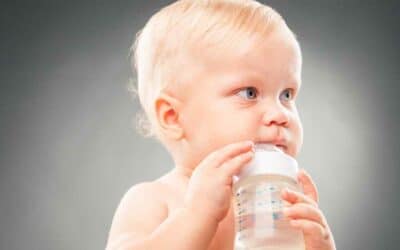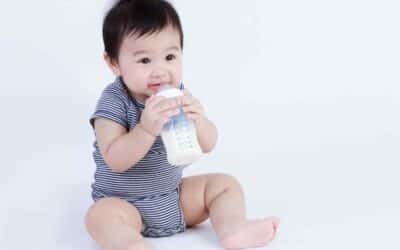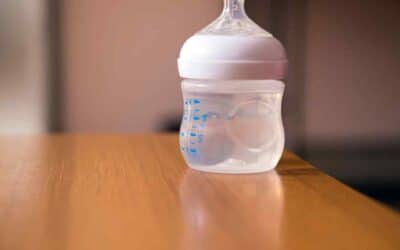Traveling with a baby can be a rewarding adventure, a chance to introduce your little one to the world’s wonders. Yet, amidst the excitement of exploring new places and making lasting memories, one crucial concern weighs heavily on every parent’s mind: ensuring your baby’s nourishment remains consistent and impeccable throughout the journey. This task becomes all the more daunting given the maze of baby formula options available on the market today.
As responsible parents, we understand that proper nutrition is non-negotiable, whether we’re at home or halfway around the world. However, when it comes to selecting the right baby formula for travel, it can feel like navigating through uncharted waters. That’s precisely why we’ve crafted this article – to serve as your reliable compass in the world of baby formula choices during travel.
In this comprehensive guide, we’ll delve into the intricacies of baby formula selection, exploring the various types available and the factors you should consider, and help parents in choosing the right baby formula for travel. Our aim is simple: to empower every formula feeding parent like you with the knowledge and confidence needed to make informed decisions when it comes to nourishing your little one on the go. Say farewell to the uncertainty and stress that often accompany travel preparations; instead, embrace the freedom of knowing you have chosen the perfect baby formula for your journey. Welcome to the world of stress-free travel with your baby, where every moment is an opportunity to thrive.
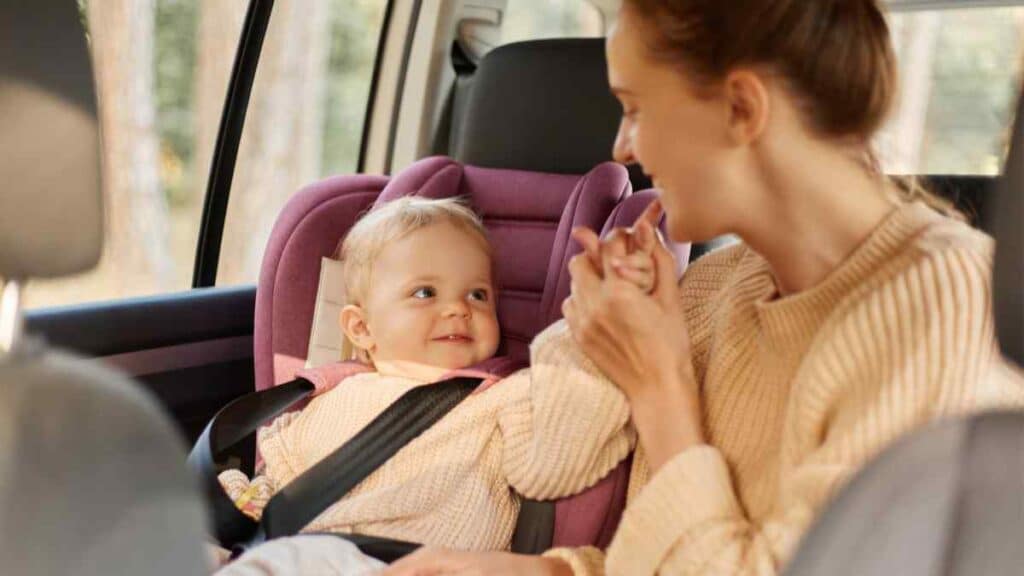
Understanding Baby Formula Basics
A. Different Types of Baby Formulas
1. Cow’s Milk-Based Formulas
When it comes to baby formula bottle, cow’s milk-based formulas are among the most common and widely used. They are designed to mimic the composition of breast milk as closely as possible. These formulas are suitable for most infants and provide the necessary nutrients for healthy growth.
2. Soy-Based Formulas
Soy-based formulas are a viable alternative for bottle feeding infants with lactose intolerance or dairy allergies. They are made from soy protein and offer a lactose-free option. However, consult your pediatrician before switching to soy-based formula, as it might not be suitable for all babies.
3. Hydrolyzed Formulas
Hydrolyzed formulas are specially formulated for infants with severe allergies or difficulty digesting lactose or cow’s milk proteins. These formulas contain proteins that are broken down into smaller, more manageable fragments, making them gentler on the baby’s stomach.
B. Importance of Consulting a Pediatrician Before Choosing
It cannot be stressed enough that consulting a pediatrician before selecting a baby formula and the liquid used to make it is crucial. Each infant is unique, with specific dietary needs and potential allergies. Your pediatrician can provide valuable guidance on which formula type is most suitable for your baby’s individual circumstances.
C. Factors to Consider When Selecting a Formula
When choosing a baby formula, several factors come into play:
- Baby’s Nutritional Needs: Consider your baby’s age, weight, and any special dietary requirements.
- Ingredient List: Read formula labels carefully to understand the ingredients, especially if your baby has known allergies or sensitivities.
- Form: Decide whether you prefer ready-to-feed formula, store brand formula, or concentrated liquid formula based on your travel plans and convenience.
- Packaging: Opt for travel-friendly packaging, such as single-serving packets or formula bottles, to make feeding on the go easier.
- Water Quality: Be mindful of the water source you’ll use to mix the formula. Bottled water is a safe bet when traveling, but if using tap water, ensure it’s safe for consumption.
- Preparation: Plan how you’ll prepare bottles ahead of time, and consider investing in bottle warmers or powder formula dispensers to make the process smoother.
- Storage: Bring along a cooler bag with frozen gel packs to keep prepared formula cool and safe for your baby.
- Airport Security: Be aware of TSA regulations regarding carrying baby formula through airport security. Prepared formula and bottles may need to be screened separately by a TSA officer.
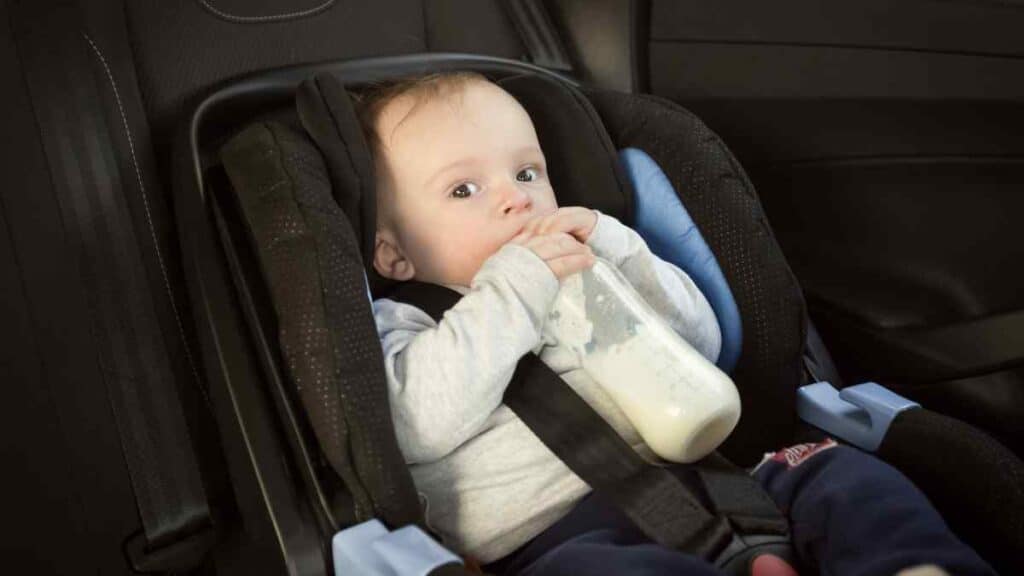
Convenience vs. Nutrition
A. Ready-to-Feed vs. Powdered Formulas
When it comes to selecting the right baby formula for your little one during your travels, one of the key decisions you’ll face is whether to opt for ready-to-feed or organic formulas. Each choice has its own set of advantages and disadvantages, and understanding their implications is essential for ensuring your baby’s well-being on the go.
B. Pros and Cons of Each Option
Ready-to-Feed Formula:
Pros:
- Convenience: Same with breast milk, ready-to-feed formula is incredibly convenient, especially when you’re on the move. No mixing or measuring is required; simply open the bottle, and your baby’s meal is ready.
- Nutrient Retention: This type of formula is sealed and sterilized, ensuring that nutrients remain intact until it’s time for feeding.
Cons:
- Cost: Ready-to-feed formulas are typically more expensive than powdered versions, which can add up during extended travels.
- Bulkiness: The packaging can be bulkier than powdered formula containers, making it less space-efficient in your carry-on bag or diaper bag.
Powdered Formula:
Pros:
- Cost-Effective: Similar to baby food, powdered formula tends to be more budget-friendly, which can be a significant factor for many families, especially during longer trips.
- Portability: Powdered formula comes in compact containers, making it easier to transport and store.
Cons:
– Preparation: Mixing powdered formula with water requires a bit more effort and access to clean, safe water sources.
– Nutrient Risks: There’s a slight risk of improper mixing, potentially affecting the formula’s nutrient balance.
C. Suitability for Different Travel Scenarios
- Short Trips: Similar to breast milk, ready-to-feed formula is perfect for short trips where convenience is key. It’s easy to grab and go, and you won’t need to worry about carrying extra supplies like bottles and warmers.
- Long Journeys: For extended travels, powdered formula can be more practical due to its cost-effectiveness and portability. However, ensure you have access to clean water and suitable containers for mixing.
- Air Travel: Ready-to-feed formula can be a lifesaver during air travel, as you won’t need to fuss with water quality or warming. Just remember that TSA regulations may require additional screening for these bottles at security checkpoints.
- Road Trips: Both breast milk and infant formula can work well for road trips, especially for every formula-fed baby. Ready-to-feed offers hassle-free feeding during rest stops, while powdered formula can be a more economical choice for longer drives.
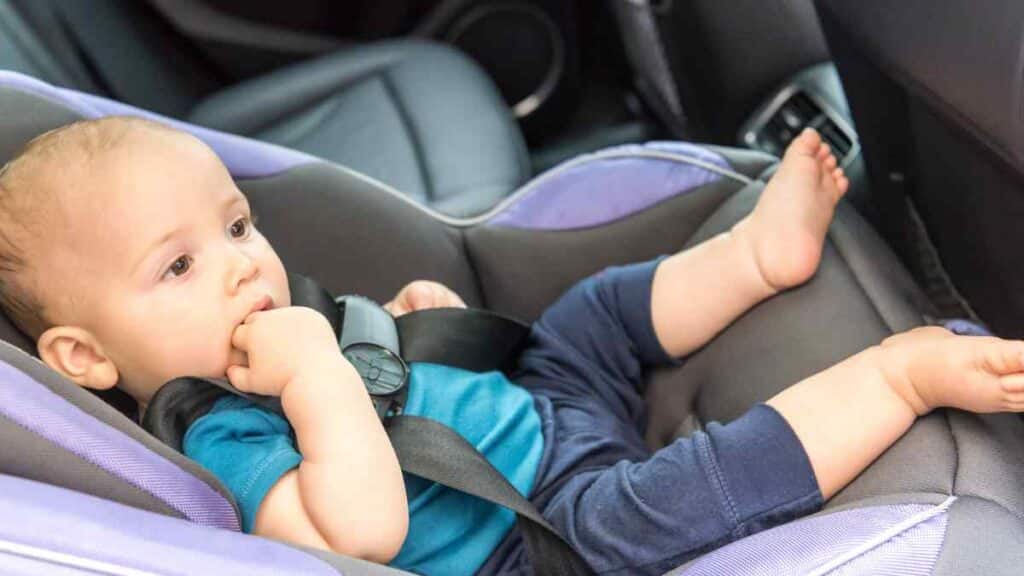
Portability and Packaging
A. Packaging Options for Baby Formulas
When embarking on a journey with your baby, having the right packaging for their formula and baby food can make all the difference. Here are some packaging options to consider:
1. Bottles:
Formula bottles are pre-filled with the appropriate amount of powdered formula. You can add water when it’s time for your baby’s feed. These bottles often have disposable liners, making clean-up a breeze.
2. Tetra Paks:
Tetra Paks are compact, lightweight, and environmentally friendly. They contain pre-mixed liquid formula and are sealed airtight to maintain freshness.
3. Single-Serving Packets:
These are individual, pre-measured servings of powdered formula. They are convenient for portion control and can be mixed with water when needed.
B. Choosing the Most Travel-Friendly Packaging
When selecting packaging for your baby’s formula, consider the following factors:
- Convenience: Opt for packaging that aligns with your travel plans. If you need a quick, mess-free solution, ready-to-feed bottles or Tetra Paks might be ideal. Single-serving packets are great for portion control.
- Portability: Compact and lightweight options, like Tetra Paks or single-serving packets, are best for on-the-go parents. They take up less space in your carry-on bag or diaper bag.
- Freshness: Ensure the packaging maintains the formula’s freshness. Tetra Paks are known for their airtight seals, which help preserve the quality of liquid formulas.
C. Tips for Packing and Storing Baby Formula While Traveling
Packing and storing baby formula while traveling can be a breeze with some thoughtful preparation:
- Carry Sufficient Formula: Always pack more formula than you think you’ll need. It’s better to have extra than to run out in the middle of your journey.
- Separate Containers: If using powdered formula, consider bringing a separate container with pre-measured formula servings to avoid carrying the entire canister.Bottle System: If using formula bottles, pack enough for the duration of your trip. Also, bring extras in case of unexpected delays.
- Washing Supplies: If you plan to wash bottles, bring a bottle brush, mild detergent, and a container for washing. Some hotels and accommodations provide sterilizing bags.
- Safe Water: Ensure the water you use to mix your baby’s formula is safe for consumption, especially if you’re traveling to areas with questionable water quality. Besides using a bottle warmer, ottled water is a safe bet.
- Cooling Solutions: Invest in a cooler bag with ice packs to keep prepared formula and breast milk supply cool and safe for your baby.
- Security Checkpoints: Be prepared for additional screening of formula and bottles at airport security checkpoints. Familiarize yourself with Transport Security Administration (TSA) guidelines regarding baby formula.
- Carry Essentials: Pack essentials like burp cloths, wet wipes, bottle warmer, and plastic bags for disposing of used items.
- Warm Water: If your baby prefers warm formula, consider a portable bottle warmer or bring hot water in a thermos to mix with the formula.
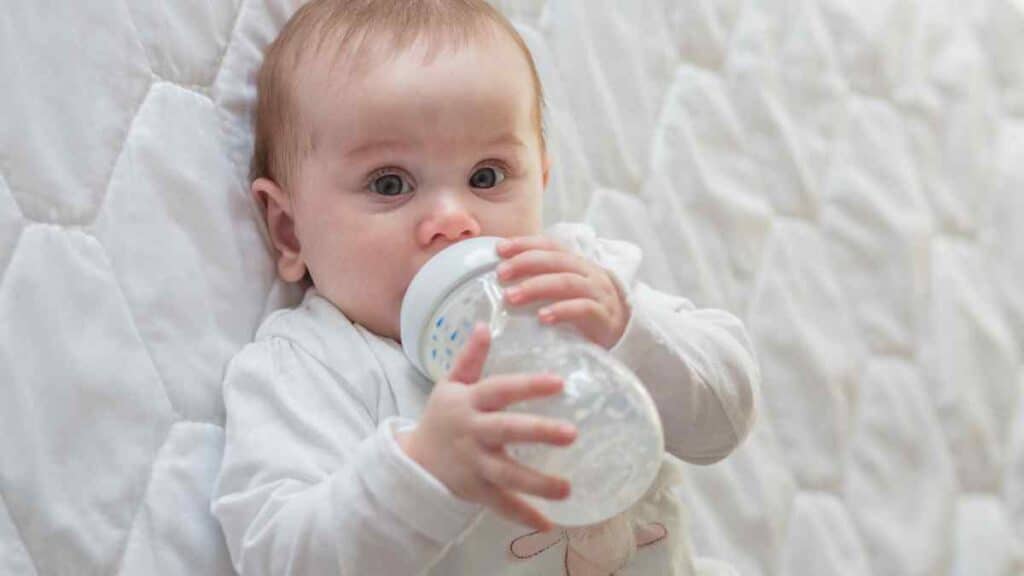
Brand and Infant Formula Selection
A. Trusted Formula Brands for Travel
When it comes to choosing the right infant formula for your travels, relying on trusted brands is a smart move. Here are some well-regarded formula brands that many parents trust:
- Similac: Known for its wide range of infant formulas catering to various needs, Similac is a popular choice among parents for its quality and consistency.
- Enfamil: Enfamil offers a range of formulas designed to support baby’s growth and development. Their travel-sized formula options are convenient for on-the-go parents.
- Gerber Good Start: Gerber is a household name in baby food, and their Good Start line of formulas is formulated with babies’ nutritional needs in mind.
- Earth’s Best Organic: If you prefer organic formulas, Earth’s Best Organic is a well-respected brand that provides organic options for your little one.
B. Reading Labels and Ingredients
When selecting an infant formula, reading labels and understanding the ingredients is crucial:
- Check for Age Appropriateness: Ensure the formula is suitable for your baby’s age. There are specific formulas for infants, older babies, and toddlers.
- Ingredients: Pay attention to the ingredient list. Some babies may have sensitivities or allergies to certain components, so it’s essential to know what’s in the formula.
- Nutrient Composition: Look for formulas that closely mimic breast milk in terms of nutrient composition, including proteins, fats, carbohydrates, vitamins, and minerals.
- Special Formulas: If your baby has specific dietary needs or health conditions, consult with a pediatrician to select a formula that addresses those requirements.
C. Importance of Carrying Extra Formula
When you’re traveling with a baby, having extra formula on hand can be a game-changer:
- Unforeseen Delays: Travel plans can be unpredictable, and you might encounter delays. Carrying extra formula ensures your baby is well-fed even if you’re stuck at an airport or facing unexpected travel hiccups.
- Sudden Hunger: Most babies can be unpredictable when it comes to their feeding schedule. Having extra formula means you’re always prepared to meet their needs.
- Peace of Mind: Knowing you have a surplus of organic formula provides peace of mind, reducing travel-related stress and allowing you to focus on enjoying your trip.
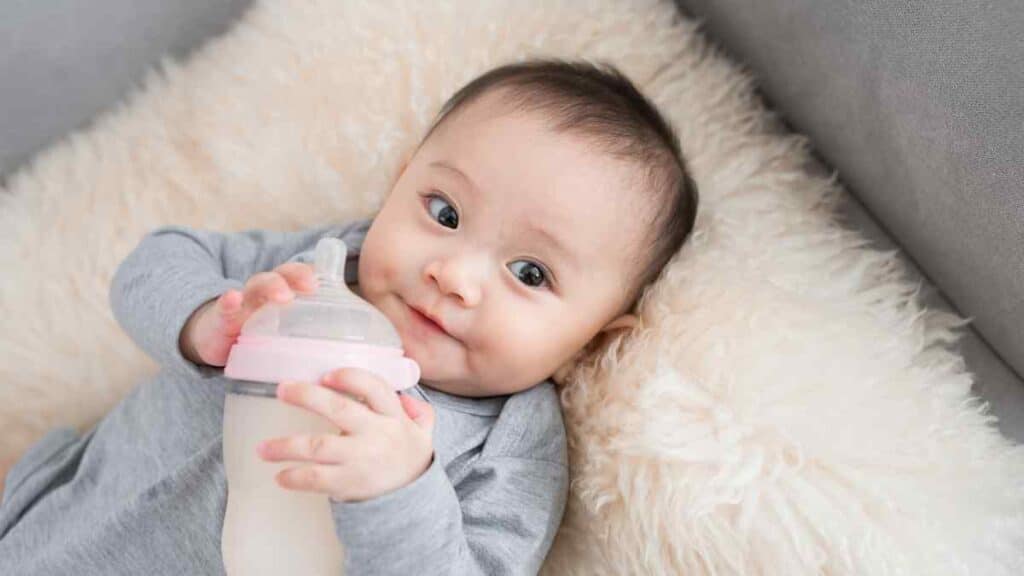
Conclusion
In the grand adventure of travel, where every moment is an opportunity for discovery and connection, ensuring your baby’s well-being is a non-negotiable priority. Navigating the vast array of baby formula choices may initially seem daunting, but armed with knowledge and careful planning, you can embark on your journey with confidence and peace of mind.
From understanding the diverse types of formulas available to choosing the most convenient packaging and selecting trusted brands, you’ve gained insight into the art of making informed decisions for your little one. You’ve learned how convenience and nutrition can coexist harmoniously in your travel strategy, and why carrying extra formula is a safeguard against unforeseen circumstances.
So, as you set out on your next adventure with your little traveler, remember that you are well-prepared to navigate the complexities of baby formula choices. Let this knowledge be the wind in your sails, carrying you toward a world of stress-free travel, unforgettable moments, and a happy, well-fed baby by your side. Bon voyage!
Did this article help you? Let us know in the comments below. If you have any questions, don’t hesitate to ask.

